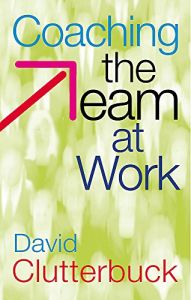Join getAbstract to access the summary!

Join getAbstract to access the summary!
David Clutterbuck
Coaching the Team at Work
Nicholas Brealey Publishing, 2007
What's inside?
You know how to coach individuals to better performance – but can you coach a team?
Recommendation
Coaching is a complex and, at times, slippery concept. Is it teaching? Encouragement? Therapy? Leading? The answer is always, “It depends.” David Clutterbuck does a fine job of explaining in detail just what it depends upon. He combines an impressive array of research and experiential accounts into an overview of the topic. He starts with coaching in general, then focuses on the even more complex process of coaching a team. Clutterbuck is clear and honest. He makes a point of identifying where different approaches to coaching clash and, more generally, explaining what is and isn’t known about team coaching. He includes many models and metaphors for coaching, and often presents his key points in list and table form. As a result, getAbstract suggests his book to anyone who is responsible for coaching teams, and to those who must lead teams or serve on them. The main weakness of the book is a corollary of its strengths: Clutterbuck works so hard to include all major coaching models and perspectives that the reader may have to do some sorting.
Summary
About the Author
David Clutterbuck, a coach, mentor and consultant for 25 years, has written nearly 50 books and hundreds of articles. The former New Scientist news editor and “serial entrepreneur” is also a university lecturer in England.



















Comment on this summary